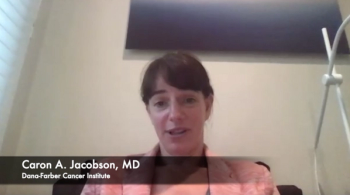
Interim results from the study suggested that axicabtagene ciloleucel (axi-cel) demonstrated significant and durable clinical benefit in patients with relapsed or refractory indolent non-Hodgkin lymphoma.

Your AI-Trained Oncology Knowledge Connection!


Interim results from the study suggested that axicabtagene ciloleucel (axi-cel) demonstrated significant and durable clinical benefit in patients with relapsed or refractory indolent non-Hodgkin lymphoma.
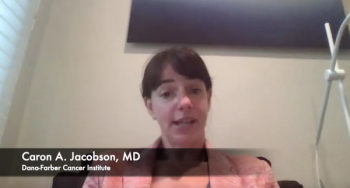
The expert in hematology discussed what patients should know about the study, which evaluated the use of axicabtagene ciloleucel (axi-cel) in patients with relapsed or refractory indolent non-Hodgkin lymphoma.

Results from the phase 2 ZUMA-5 study indicated that axicabtagene ciloleucel (axi-cel) may be a promising approach for treating this patient population.
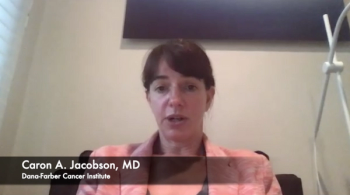
The study assessed the use of axicabtagene ciloleucel in patients with relapsed or refractory indolent non-Hodgkin lymphoma.
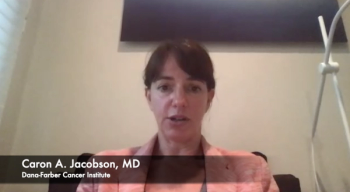
The study evaluated the use of axicabtagene ciloleucel (axi-cel) in patients with relapsed or refractory indolent non-Hodgkin lymphoma.

Post-transplant lymphoproliferative disorder (PTLD) is a common and serious complication of solid organ transplantation. It is a heterogeneous collection of diagnoses with varied clinical courses and outcomes. The majority of PTLD is Epstein-Barr virus (EBV)-driven as a result of loss of immune control of EBV-positive B lymphocytes. Risk factors for the development of PTLD thus reflect loss or absence of EBV immunity; they include younger age and pre-transplant EBV naivety, as well as the degree and type of immune suppression, type of organ transplantation, and time from transplantation. Identifying patients at risk for PTLD and developing strategies to prevent PTLD is the subject of much research, and the use of antiviral medications and EBV vaccines has yielded intriguing, albeit preliminary, results. As we learn more about the prognostic factors affecting outcome and the pathogenesis of individual diseases, we are better able to tailor therapy to the individual. Further clinical investigation, including randomized controlled trials, will be important in reaching this goal.
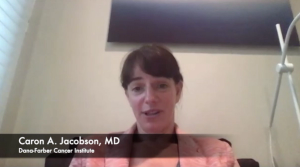
Published: August 2nd 2020 | Updated:

Published: September 15th 2010 | Updated:
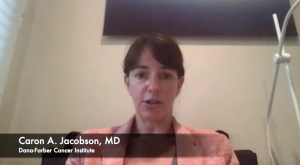
Published: June 7th 2020 | Updated: